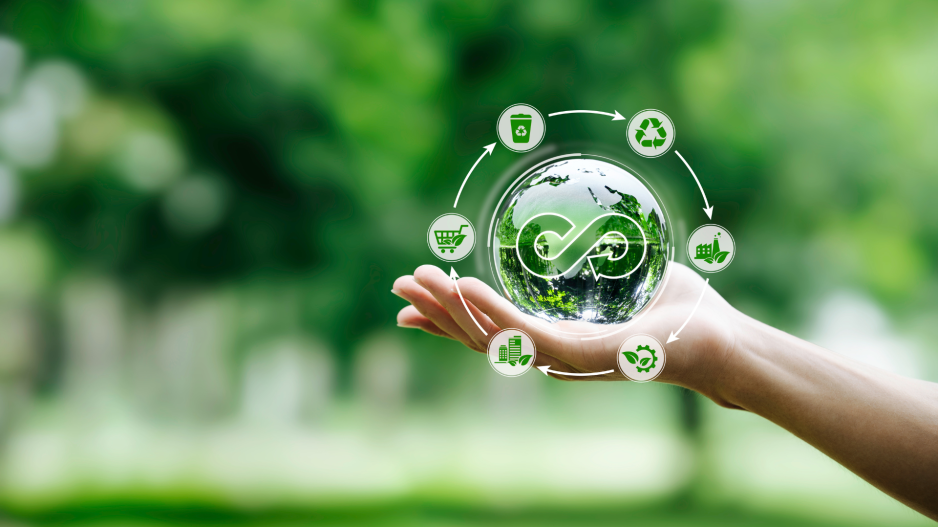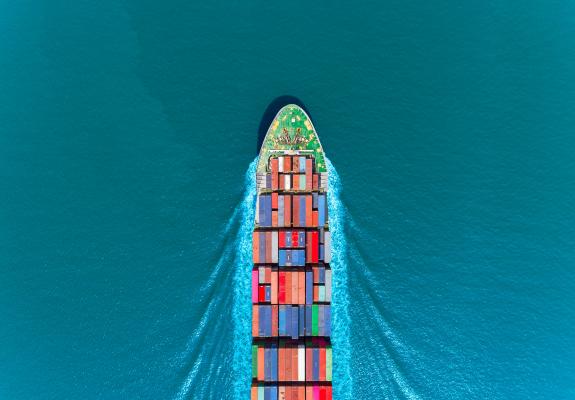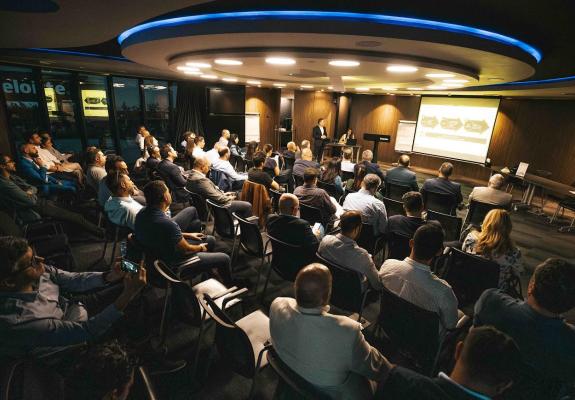Adopting a Circular Economy Culture for a Sustainable Economy in the 21 Century
In our modern times, the three pillars of sustainability society - economy - environment is threatened by two key environmental issues: climate change and the excessive consumption of natural resources to meet the needs of the overpopulation of the planet. As the observation of the indiscriminate use of non-renewable energy sources is gradually undermining the survival of future generations, a major objective is to find efficient, environmentally friendly and ecosystem-friendly solutions in order to ensure quality of life in the 21st century.
In fact, in a recent statement, Jacqueline McGlade, Executive Director of the European Environment Agency, said that "Continuing with current consumption patterns in Europe is not an option...Europe must take the lead in exploring a new consumption model that does not compromise the needs of others or future generations, nor harm the environment." (EEA, 2023)
Similarly, the European Commission's Commissioner for Environment, Oceans and Fisheries, Virginijus Sinkevičius, stressed that "We only have one planet Earth, and by 2050 we will be consuming as if we had three. The new Action Plan for the Circular Economy will make circularity a dominant feature of our lives and accelerate the green transition of our economy. We offer decisive action to change the top of the sustainability-product design chain. Future actions will create opportunities for businesses and jobs, empower European consumers, harness innovation and digitalisation and, like nature, ensure that nothing is wasted." (European Commission)
Rightly, based on the statements of the European Commission representatives, the obligation for sustainability is implicitly specified. As early as 1972, when the definition of sustainability first appeared, it focused on describing the inability of the natural environment to regenerate itself through the high rates at which human activity, as opposed to the production of resources, is moving. The term was established in 1992 through the organized international effort of participants at the Conference on Environment and Development in Rio de Janeiro. It was then that the importance towards the protection of the environment and its living beings was highlighted, recognising the interconnection of the social, economic and environmental pillars, with their aim towards the well-being of human existence. For the first time, sustainability strategies are recorded, with the Rio Declaration being the most basic, followed by the United Nations Framework Convention on Climate Change (UNFCC), the Convention on Biological Diversity and the Declaration on the principles of forest management (Giakoumelou, 2023).
Then, in 1995 the first UNFCC assembly is convened, where later its foundations will form the basis of the Kyoto Protocol, a guidebook on emissions, their impact and policies to address them. This is followed in 2002 by the World Summit on Sustainable Development in Johannesburg, where the "Political Declaration and Implementation Plan" towards the protection of the natural environment is adopted, with references to energy, water, health, agriculture and biodiversity (Giakoumelou, 2023).
A decade later in 2012, the second Rio Conference, the so-called Rio+20, takes place, which formulates the document "The Future We Want" as a declaration on the green economy and sustainable development. This conference formalised for the first time the importance of the United Nations Environment Program (UNEP). A milestone year for sustainability is 2015, when the United Nations Sustainable Development Summit is held, with the launch of the 2030 Agenda, entitled “Transforming Our World: The 2030 Agenda for Sustainable Development”, with its 17 Sustainable Development Goals (SDGs). It is considered important since the action plan it advocates universally covers all stages of global healing, livelihood and human well-being (Giakoumelou, 2023).
In SDSN's recent SDSN 2023 report on the 17 SDGs, Cyprus, despite the commitment and efforts of its government, is ranked 59th out of 166, with a score of 72.5, while the highest score of 86.8 is held by Finland, which is ranked 1st. In addition, an overview of the country's situation and progress towards the 17 SDGs shows that most SDGs are making progress towards the target, but these scores are lower than the EU average. Consequently, and despite this ongoing progress, it is required that most, if not all, existing strategies and policies developed by the national and local authorities of the Republic of Cyprus for the SDGs are aligned with the officially declared target of the 17 SDGs of the UN Conference. (SDSN, 2023)
It is therefore clear that in Cyprus today, however defined, government and society, we do not have an environmental culture, as a holistic approach to the relevant knowledge is lacking. Clearly there is a need to promote the circular economy, addressing the wider society, through reforms in our education structures, through active systems in our local authorities, through a series of regional educational programmes.
Previously, the emergence of European and national mobilisations with state agreements, economic incentives and technological methods to support sustainable development, does not depend on the imposition of regulations. On the contrary, it requires collective efforts from the country's stakeholders, from the government, NGOs, businesses, local authorities, academic and educational institutions, to contribute to the restoration of circular economy infrastructure.
However, the transition to a circular economy encompasses our definition of sustainability. It is a concept that implies a revolution in thinking, with upgraded actions by a society made up of the small nuclei of the family, school classes and workplaces, of an entrepreneurial culture based on the assumption of individual responsibility and goodwill. As such, personal behaviour change in relation to our environment requires systematic education, a partnership of actions and, above all, active citizens and businesses in the context of adopting sustainable consumption patterns.
The challenge of education is the means of advancing environmental culture from the school desk to the social arena. The role of environmental education is seen as crucial in educating citizens on relevant issues, as it contributes to the cultivation of systems thinking, skills enhancement, evaluation and action against unsustainable improvement.
First and foremost, in order to achieve sustainable development, it is necessary to instil ecological values, respect and a strong willingness to participate in the recovery of this crisis. Since the educational method alone cannot save the climate field. As a separate entity, each of us bears a share of responsibility in the face of the global phenomenon of climate change and clearly has a responsibility to address it responsibly through our role as parents, educators, entrepreneurs and executives.
Therefore, the need to adopt a culture of a circular economy is imperative, as this model fully utilizes resources, taking advantage of all possible waste, through the reuse, repair and recycling of products, extending their life cycle, adding value to them in a new capacity. The benefits of applying the circular model provide protection of biodiversity of species, economic growth, superior quality of life, without toxic substances, using as much as possible energy efficient resources.
Henceforth, the environmental recovery priority is intertwined with the introduction of sustainable development education for all, so that the principles of the circular economy are gradually embraced, and citizens are inoculated with an environmental ethos, or culture. After all, the Indian proverb “We do not inherit the earth from our ancestors, we borrow it from our children” commands us to wake up in time and save what we have borrowed and what we hope to return to our descendants. Therefore, we are all called upon to raise awareness in the face of standards of sustainable behaviour by setting an environmental policy.
Next, it is necessary to integrate sustainability into entrepreneurship education, also known as Education for Sustainable Development or ESD, which is about preparing future business leaders. These will promote innovation and economic growth in an environmentally responsible and socially just manner. This approach implies developing a relevant curriculum, providing practical learning experiences, promoting a culture of ethical leadership and creating ecosystems supported by sustainable entrepreneurship. As a result, the next generation of entrepreneurs is equipped with the knowledge, skills and values needed to build a more sustainable and resilient future. (Mastrodemou, 2022)
In conclusion, we hope that the Cyprus National Action Plan for the Circular Economy in combination with the "Circular Economy Grants Scheme for Small and Medium Enterprises (SMEs)" will contribute to the improvement of the circular economy in Cyprus and the development of a relevant business environmental culture. The total budget of the scheme amounts to €14.4 million, which will support both training and business mentoring activities, and is addressed not only to existing enterprises but also to start-ups. It is worth noting that the submission period for proposals starts on Tuesday, 2 July 2024 at 9 a.m. Applications will be accepted via the YECB's online Sponsorship Plans System until 30 September 2024 at 11:59 p.m.






